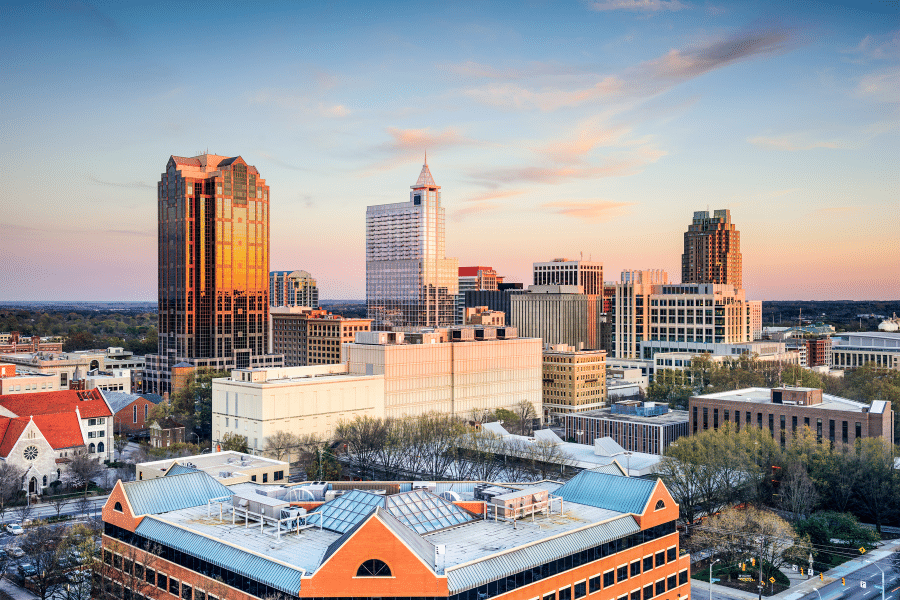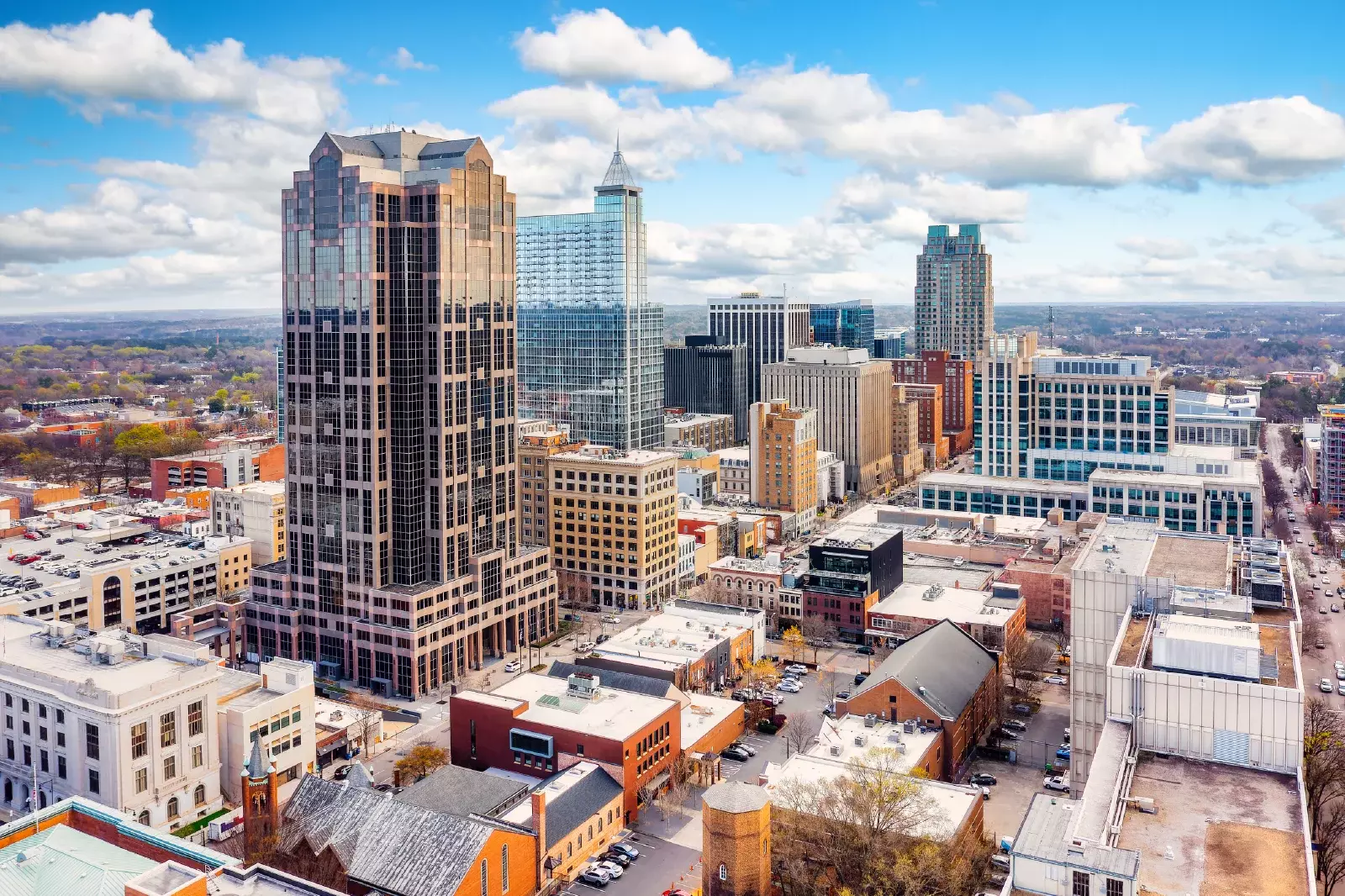The Top Safest Places to Live in NC
Are you searching for the safest cities in North Carolina? Here are the ten safest places to live in NC!
When searching for the perfect place to call home in North Carolina, safety naturally tops the list of priorities. Whether you are relocating with family, starting a new job, or simply seeking a peaceful community to settle down, understanding the overall safety of your potential new home is essential.
North Carolina offers numerous communities that consistently rank among the nation's safest, combining low crime rates with exceptional quality of life, excellent schools, and vibrant local amenities.
The state has experienced tremendous growth in recent years, particularly in the Research Triangle area, which encompasses Raleigh, Durham, and Chapel Hill.
Many of North Carolina's safest communities benefit from access to quality education, strong economic foundations, community engagement, and proactive police departments that focus on data-driven strategies to prevent crime before it occurs.
While residents can take personal safety measures such as installing a home security system or joining a neighborhood watch program for added protection, learning about which cities are the safest can make all the difference.
In this comprehensive guide, we'll explore ten of the safest places to live in North Carolina, providing you with detailed crime statistics, unique safety features, and insights into what makes each community an excellent choice for security-conscious homebuyers.
From charming small towns to thriving suburbs, these communities represent the best of what North Carolina has to offer in terms of safety and livability.
Check out these safe places to live in North Carolina
1. Cary
Cary is one of the largest cities on our list, with approximately 191,000 residents, yet it maintains remarkably low crime rates. Located in the heart of North Carolina's Research Triangle Park, Cary combines high-tech economic opportunities with family-friendly neighborhoods and exceptional public safety.
With a crime rate of 13.65 per 1,000 residents, Cary is a safe place to call home. The chance of becoming a victim of property crime in Cary is one in 79, and your chance of becoming a victim of violent crime is one in 938.
Cary's safety success stems from a combination of factors, including high educational attainment (94.4% high school completion rate), economic prosperity, and strong community policing. The Cary Police Department maintains an active presence and employs modern crime prevention strategies, including comprehensive crime mapping and community engagement programs.
The city's diverse population, including many professionals working in the Research Triangle, creates a stable, engaged community that values safety and quality of life. The city's southwest neighborhoods are considered particularly safe, featuring well-planned residential developments with active homeowner associations.
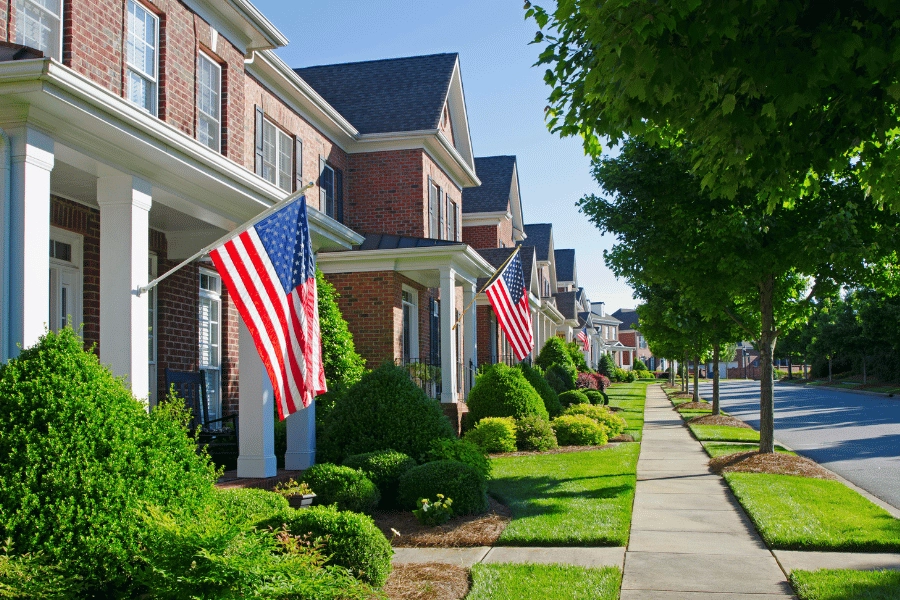
2. Morrisville
Morrisville, a diverse community of approximately 32,628 residents located between Raleigh and Durham, offers unique cultural richness alongside solid safety credentials. Known for its significant international population working in the Research Triangle Park, living in Morrisville balances urban convenience with suburban security.
With a total crime rate of 28.55 per 1,000 residents, Morrisville's crime rate is below the state average and 10% safer than other U.S. cities. Your chance of becoming a victim of property crime is one in 37.
Despite having a slightly higher overall crime rate compared to some surrounding communities, Morrisville excels in violent crime prevention. The town's violent crime rate is remarkably low (one in 793), making it particularly safe from serious offenses.
The Morrisville Police Department maintains transparency through a Community Crime Map system, allowing residents to stay informed about incidents in their neighborhoods. The western part of Morrisville is generally considered the safest area. Neighborhoods in Morrisville, like Park West and Downing Glen, feature newer construction with modern security features.
3. Apex
Living up to its motto as "The Peak of Good Living," Apex consistently ranks among North Carolina's safest cities. This Wake County suburb of approximately 76,000 residents combines small-town charm with big-city amenities while maintaining remarkably low crime rates.
Apex's commitment to safety is evident in its data-driven approach to crime prevention. With a crime rate of only 9.93 per 1,000 residents, Apex is a safe place to live in North Carolina. With zero murders reported in recent years, your chance of becoming a victim of violent crime is one in 1,806.
The town's high educational attainment (93.7% high school graduation rate) correlates strongly with lower crime rates. Economic stability, with a cost of living only slightly above the national average, ensures that residents have legitimate opportunities for success.
The southwest part of Apex is considered particularly safe, with excellent schools and well-maintained neighborhoods attracting families who prioritize security.
4. Davidson
Nestled along the shores of Lake Norman near Charlotte, Davidson stands out as one of North Carolina's safest communities with remarkably low crime rates. With a population of approximately 16,000, this charming college town maintains a crime rate of just 4.27 per 1,000 residents, making it safer than 74% of U.S. cities.
The Davidson Police Department maintains an active presence despite having fewer officers per capita than state and national averages, demonstrating the effectiveness of community-oriented policing. The town's affluent, educated population (with Davidson College as a centerpiece) contributes to lower crime rates through economic stability and civic engagement.
Residents consistently report feeling very safe walking alone at night, with 88% indicating they have no safety concerns. The town's strong sense of community, pedestrian-friendly design, well-lit streets, and active neighborhood watch programs further enhance security.
.png)
5. Rolesville
Located in northeastern Wake County just outside Raleigh, Rolesville has earned its reputation as one of North Carolina's safest communities. This rapidly growing town of approximately 11,500 residents boasts a crime rate that is 83% lower than the North Carolina average and 68% lower than the national average.
With an overall crime rate of 15.57 per 1,000 residents, Rolesville is a great place to live if you value safety. The violent crime rate is significantly lower than national averages, and the property crime rate is only 10.00 per 1,000 residents.
The town's family-friendly atmosphere and strong school system attract residents who prioritize community engagement and maintaining safe neighborhoods. With excellent access to Raleigh's amenities while maintaining its small-town character, Rolesville offers the perfect blend of suburban safety and convenience.
6. Holly Springs
Holly Springs represents one of North Carolina's fastest-growing towns while simultaneously maintaining exceptional safety standards. This Wake County community of approximately 49,000 residents has successfully managed explosive growth without compromising public safety.
Holly Springs has an overall crime rate of 11.67 per 1,000 residents and is 39% safer than other U.S. cities. Your chance of becoming a victim of property crime is one in 93, and your chance of becoming a victim of violent crime is one in 1,157.
According to the Holly Springs Police Department 2024 Annual Report, the department achieved zero homicides for the year, continuing a long-standing record of minimal violent crime. The department's proactive approach includes robust traffic enforcement with nearly 6,000 traffic stops conducted annually, enhanced training programs, and strong community partnerships.
7. Wake Forest
Wake Forest, a historic town of approximately 56,764 residents located just north of Raleigh, combines Southern charm with modern amenities and strong public safety. The town's name derives from its original role as home to Wake Forest University (now located in Winston-Salem), and it maintains a collegiate atmosphere alongside family-friendly neighborhoods.
Wake Forest has an overall crime rate of 17.00 per 1,000 residents and is safer than 25% of other U.S. cities. Your chance of becoming a victim of property crime is one in 65, and your chance of becoming a victim of violent crime is one in 639.
The eastern part of the city is generally considered the safest, with well-established neighborhoods and active community watch programs. Wake Forest's real estate and strategic location provide residents with access to Raleigh's job market while maintaining a distinct small-town identity.
8. Fuquay-Varina
Fuquay-Varina, a charming community of approximately 46,317 residents in southern Wake County, has earned recognition as one of North Carolina's safest places to live. The hyphenated name reflects the 1963 merger of two historic towns, and today's community successfully blends small-town Southern charm with modern suburban amenities.
With an overall crime rate of 6.92 per 1,000 residents, Fuquay Varina is safer than 58% of other U.S. cities. The violent crime rate here is extremely low, with a rate of one in 1,511. On the other hand, your chance of becoming a victim of property crime is one in 160.
The northwest part of Fuquay-Varina is considered particularly safe, with established neighborhoods like Ballentine and Bentwinds Golf and Country Club offering luxury living alongside exceptional security standards.
9. Pinehurst
Famous worldwide for its championship golf courses, Pinehurst is also one of North Carolina's safest communities. This Moore County community of 18,502 residents maintains a crime rate that places it among the safest places in the state to raise a family.
Pinehurst has an overall crime rate of 3.90 per 1,000 residents. Pinehurst's affluent population, low poverty rate, and stable year-round resident base create an environment naturally resistant to crime.
Violent crime rates are particularly low at one in 2,306, well below the state average of one in 256. When it comes to property crime, your chance of becoming a victim is one in 288.

10. Raleigh
While Raleigh, North Carolina's capital and largest city on our list, with 499,825 residents, has higher overall crime rates than the suburban communities mentioned above, it deserves recognition for its safe neighborhoods and ongoing efforts to improve public safety. The city offers diverse neighborhoods with varying crime rates, and many areas provide excellent security for families.
Raleigh's size and diversity mean that crime statistics vary significantly by neighborhood. Raleigh is safe with an overall crime rate of 31.88 per 1,000 residents. Your chance of becoming a victim of violent crime is one in 188, and your chance of becoming a victim of property crime is one in 38.
The safest areas in Raleigh include Glenwood, Northwest Raleigh, and North Raleigh, where crime rates are substantially lower than the city average. These neighborhoods feature strong homeowner associations, well-maintained properties, excellent schools, and active community engagement.
.png)
Analyzing Crime Rates in North Carolina
Over the past few years, North Carolina's crime rate has remained close to the national average. Living in the state's safest cities can provide peace of mind and a higher quality of life. Your chance of becoming a victim of violent crime in North Carolina is one in 256, while your chance of becoming a victim of property crime is one in 48.
While the property crime rate in North Carolina is slightly higher than the national average, many of the state's safest cities have lower rates of property crimes. Living in one of these safe cities can help protect your home and possessions, contributing to a safer environment.
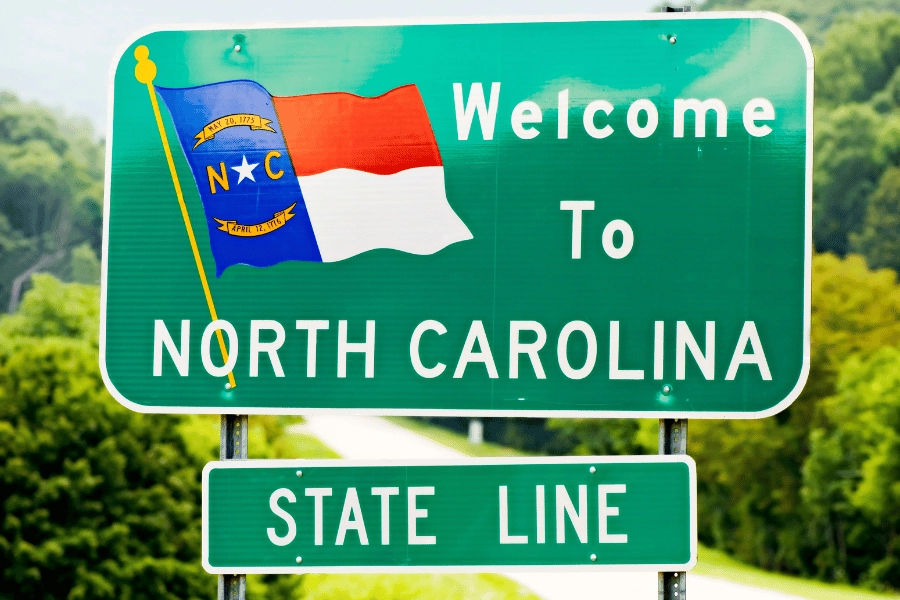
Making Your Home Safe in North Carolina
No matter where you choose to live in North Carolina, it’s essential to take steps to ensure the safety and security of your home and family. This section will provide tips for making your home safe in North Carolina, including home security systems, neighborhood watch programs, and personal safety measures.
Taking a proactive approach to safety can help create a secure environment for yourself and your loved ones.
Home Security Systems
Investing in a home security system can provide residents with protection and peace of mind in North Carolina's safest cities. Home security systems, including wired, wireless, and monitoring systems, can help to deter potential intruders and alert homeowners to suspicious activity.
When choosing a security system, it’s essential to research the various types available and consult with a professional to ensure proper installation and functionality.
Neighborhood Watch Programs
Participating in a neighborhood watch program can help to deter crime and promote a sense of community safety. These programs encourage residents to remain vigilant and report suspicious activity to the authorities.
Neighborhood watch programs can contribute to a safer and more secure community by fostering a sense of accountability and cooperation among neighbors.
Personal Safety Measures
Personal safety measures, such as being aware of your surroundings and taking precautions when out at night, can help ensure your safety in North Carolina's cities. Simple steps like locking doors and windows, concealing keys in a secure location, and remaining aware of potential targets for burglars can go a long way in protecting your home and family.
Methodology
Data was sourced from NeighborhoodScout to determine the safest places to live in North Carolina.
Frequently Asked Questions
Where is the safest place to live in NC?
Raleigh is the safest city in North Carolina and ranks top 10 nationally for its Home & Community Safety rating. It is also rated number one in the Southeastern U.S., making it an ideal place to live.
Raleigh’s safety rating is a testament to the city’s commitment to providing its residents with a safe and secure environment. The city has implemented various initiatives to ensure its citizens' safety. You can check out other safe suburbs outside Raleigh as well.
Is NC or SC safer to live in?
North Carolina appears to be the safer option, as its overall crime rate of 24.56 is lower than South Carolina's. Violent crime and property crime rates are higher in South Carolina than in North Carolina.
What city has the lowest crime rate?
Warwick, RI, is the safest city in the U.S., with the lowest crime rate in the country.
What factors contribute to the safety of North Carolina's cities?
Community engagement, proactive law enforcement, and economic stability all contribute to the safety of North Carolina's cities.
Safest Places to Live in North Carolina - Final Thoughts
The ten communities highlighted in this guide represent some of the safest options available in North Carolina, each offering unique characteristics and advantages. The safest communities combine low crime rates with other quality-of-life factors, including excellent schools, economic opportunity, community engagement, and thoughtful urban planning.
As you begin your home search in North Carolina, consider visiting these communities to experience firsthand what makes them special. Contact us today to begin your journey toward finding your perfect home in one of North Carolina's safest communities.
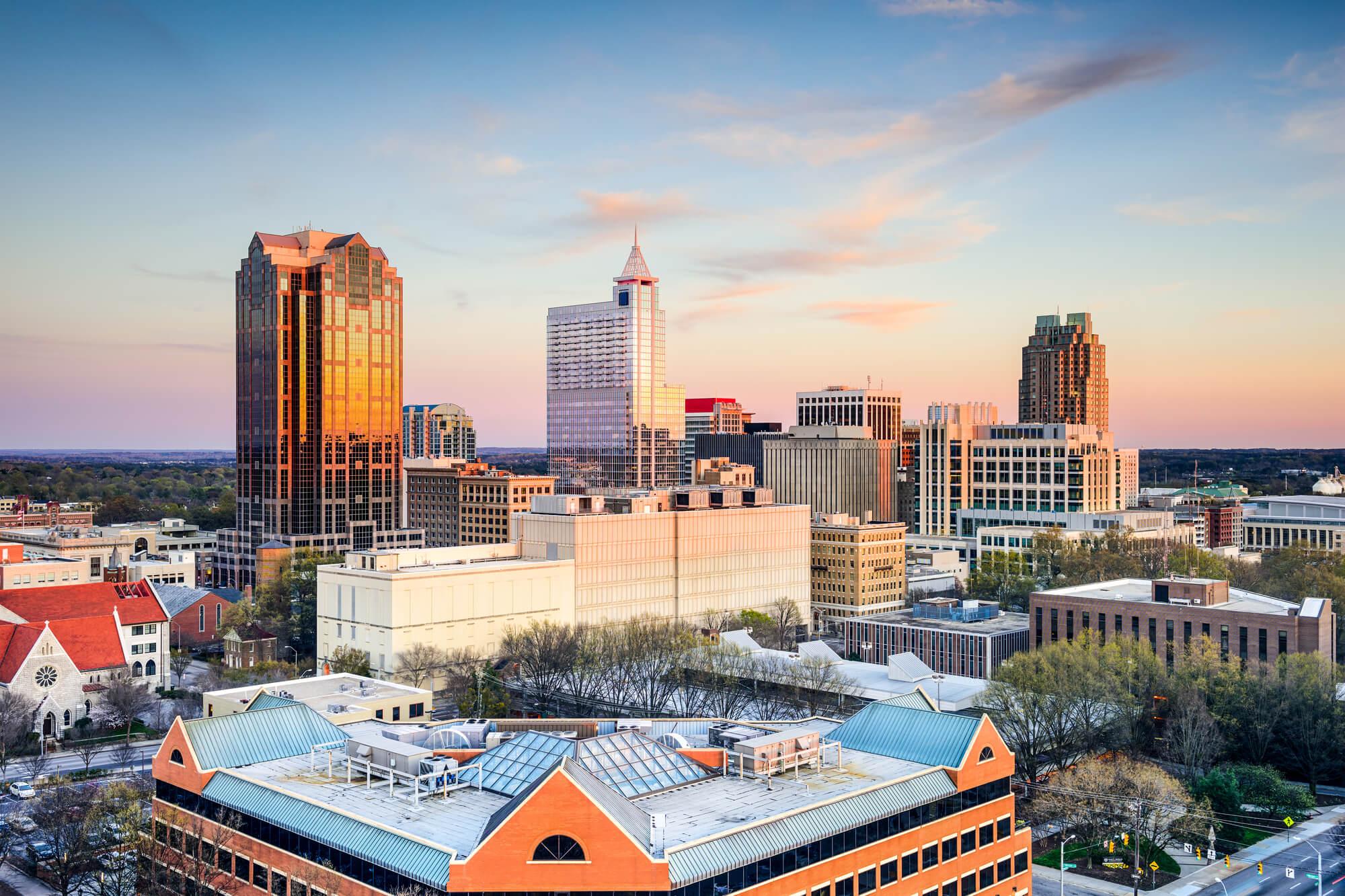
![17 Best Neighborhoods in Raleigh, NC [2026 Guide]](https://images.agentloft.com/rr-images/uploads/rr-migrated/blogs/August2024/E0Cjyqy5pGsC61lv5bGG.jpg)
